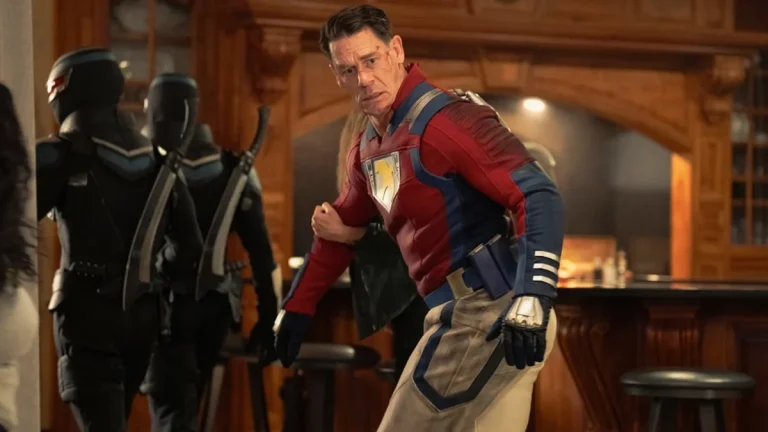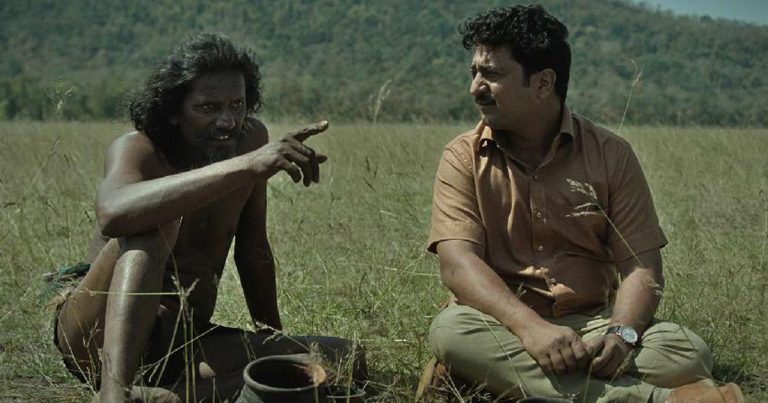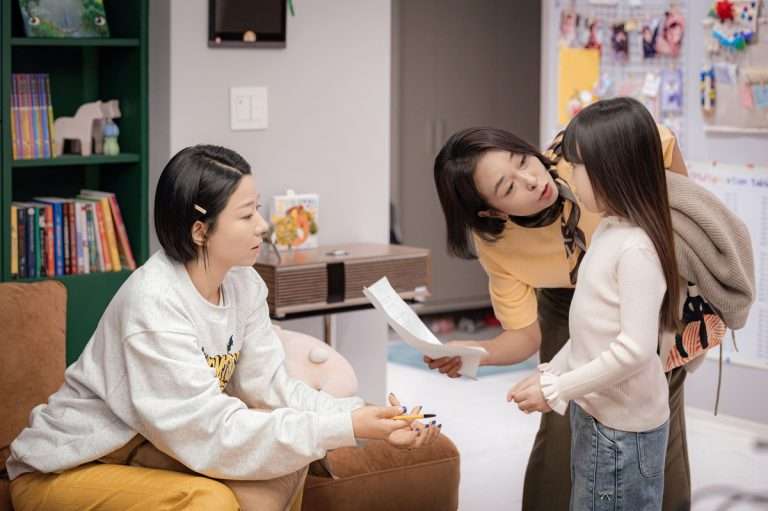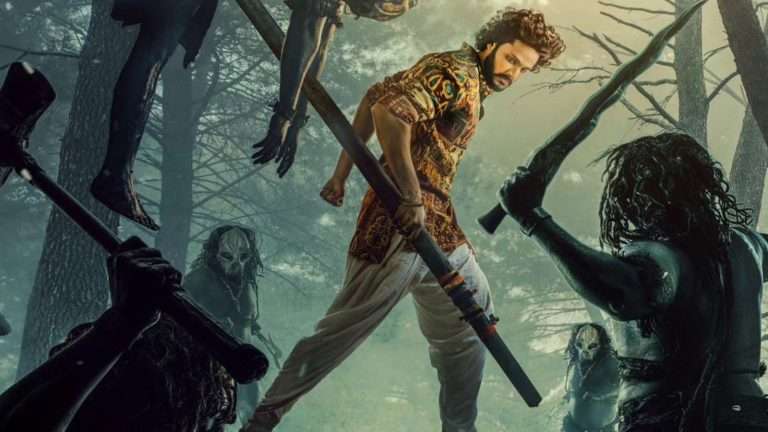Alex Garland on Civil War: “I don’t feel any need to add to the number of films that spell everything out.”
With the release of Civil War, Alex Garland once again challenges audiences with a thought-provoking narrative that blends speculative fiction with a nuanced exploration of contemporary issues. Set in a near-future United States ravaged by internal conflict, Civil War focuses on a group of war correspondents navigating a fractured nation. In an exclusive interview, Garland and lead actress Kirsten Dunst delved into their approach to the film’s themes, discussing the importance of ambiguity, the influence of real-world events, and the ethical dilemmas faced by those who document the war.
Embracing Ambiguity in Storytelling
Garland has never been one to shy away from complex, multi-layered narratives. His previous films, Ex Machina and Annihilation, left audiences pondering the nature of consciousness and the unknown. With Civil War, Garland takes a similar approach, deliberately leaving certain elements of the story open to interpretation.
“I don’t feel any particular need to add to the number of films that spell everything out,” Garland explained, underscoring his commitment to creating films that provoke thought rather than simply entertain. “My general position is that film is a broad church – a space for lots of different kinds of filmmaking.”
In Civil War, Garland poses challenging questions without providing easy answers. The film features Texas and California, two states often seen as politically opposed in real life, working together as the “Western Forces” against an authoritarian president.
When asked about this seemingly unlikely alliance, Garland responded, “I’m posing a question… at what point do political differences become less important than fighting a fascist dictator?”
This deliberate ambiguity invites viewers to engage more deeply with the narrative, considering the broader implications of such a scenario.
Kirsten Dunst, who plays the lead role of photojournalist Lee, shared her perspective on the film’s enigmatic nature. “It didn’t surprise me,” Dunst said, referring to the unexplained elements in the story. “It went with the other things that were unexplained in the film.” Dunst’s character navigates a world where moral clarity is elusive, mirroring the film’s refusal to provide clear-cut answers. This shared understanding between Garland and Dunst is evident in the film’s execution, where every choice is made with the intention of keeping the audience questioning.
The Real-World Echoes in Civil War
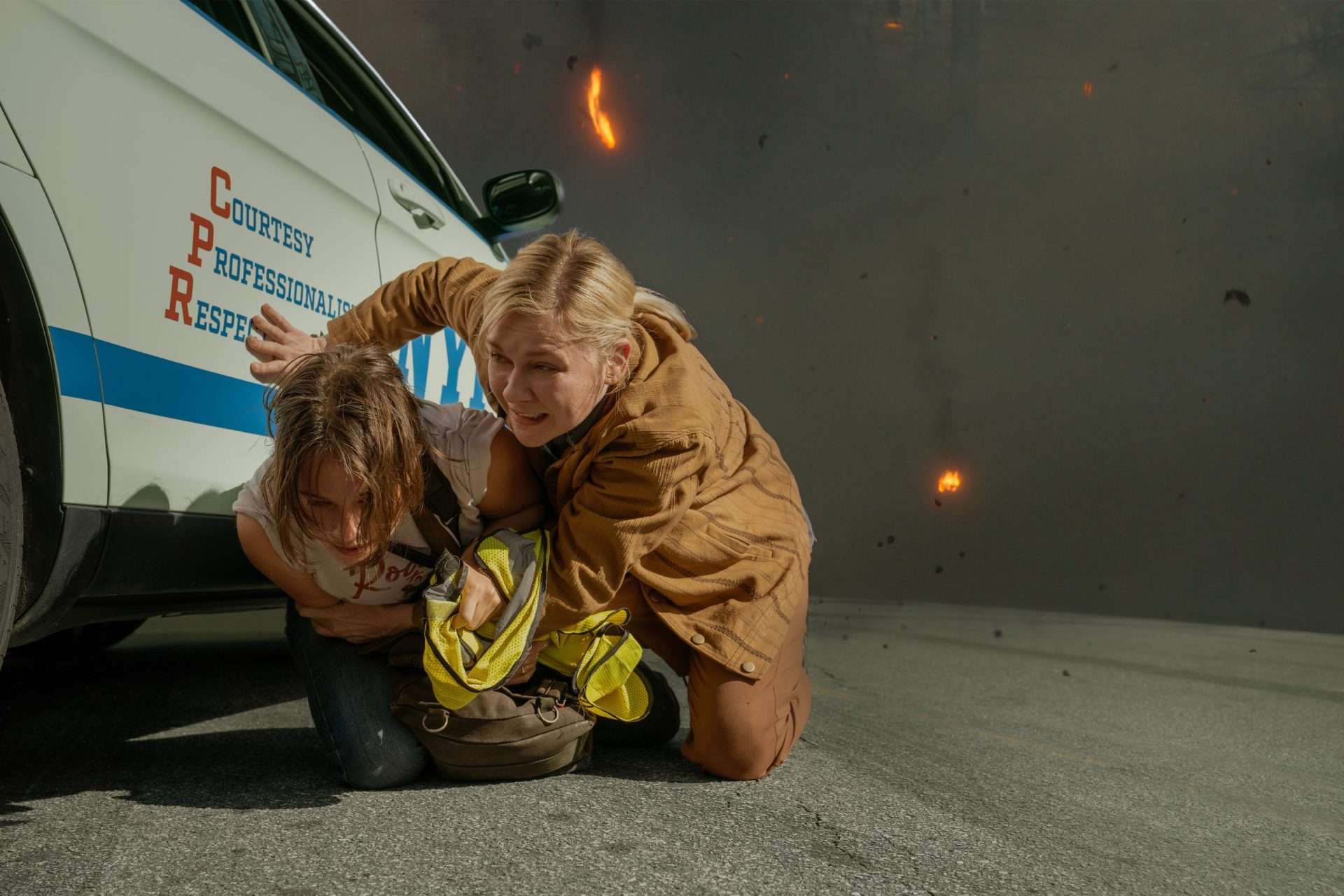
Released in the wake of a series of global upheavals, Civil War feels uncannily prescient. Garland reflected on how the anxieties of the real world influenced the film, noting that the issues it addresses were already “in the ether” long before the cameras started rolling.
“Whenever you make something which is speaking to something that’s happening now, it can give it a false look of being prescient because everyone knows a film must have been made a while ago,” Garland observed.
This insight speaks to the timeless nature of the film’s themes, which resonate with audiences grappling with the complexities of our current political climate.
The film’s production coincided with significant global events, including the outbreak of war between Ukraine and Russia. Dunst recalled how the real-world conflict added a layer of urgency to their work.
“When we were rehearsing, the war between Ukraine and Russia started,” she said. “Reading the news, it felt like it was a good reason to make this film.”
This real-time connection between the film’s narrative and actual events highlights the power of cinema to reflect and respond to the world around us.
Ethical Dilemmas in War Reporting
One of the central themes of Civil War is the ethical quandaries faced by war reporters. Garland, who grew up around journalists, drew on his personal experiences when crafting the film. “My dad worked as a cartoonist on a paper, and his friends were primarily journalists… A lot of them were foreign correspondents,” Garland shared. This intimate knowledge of the world of journalism allowed Garland to authentically portray the moral dilemmas that war reporters face in the field.
The film grapples with questions of responsibility and ethics, particularly when it comes to capturing images of suffering and violence. Garland referenced the famous photograph taken by Kevin Carter, a South African photojournalist, as a touchstone for the ethical challenges depicted in the film. “The question posed by that photo is experienced by combat journalists in places of conflict again and again… Do you take the photograph and then help them? Or do you help them because they’re a human being and of secondary importance to your capturing of the photo at that moment?” Garland’s exploration of these dilemmas adds a layer of complexity to Civil War, making it not just a war film, but a meditation on the role of those who document war.
The Impact of Filming Intense Scenes
Civil War is filled with harrowing scenes, from mass graves to violent clashes, that leave a lasting impact on both the characters and the audience. Dunst spoke about the challenges of filming such intense scenes, particularly as a mother of two young children.
“Some of the things felt very real when I first saw them, like the mass grave scene,” Dunst recalled. “But ultimately there’s a craft service table over there. And I came home, and I have two young boys, so I then had to be mom and not think about Lee so much.”
Garland, known for his meticulous attention to detail, emphasized the importance of realism on set. “I do try to make sets as 360 as possible and to have an element of realism in them,” he explained. This commitment to authenticity, even in the most extreme scenes, adds to the film’s visceral impact. “If right now I got a 50-calibre machine gun firing blanks and just started firing it in this room… you would walk out having some kind of effect, I pretty much guarantee it.”
Also, Read: 8 Movies to Watch If You Liked ‘Civil War’ (2024)
Civil War is more than just a depiction of a fractured future America; it’s a deeply reflective film that explores the moral complexities of conflict and the ambiguous nature of truth. Garland and Dunst’s insights into the making of the film reveal a shared commitment to creating cinema that challenges, provokes, and ultimately leaves a lasting impression. As Garland aptly puts it, “My form of processing is to write a screenplay.” With Civil War, he offers a powerful narrative that encourages us all to reflect on the world we live in and the stories we tell about it.
Source: BFI Interview




